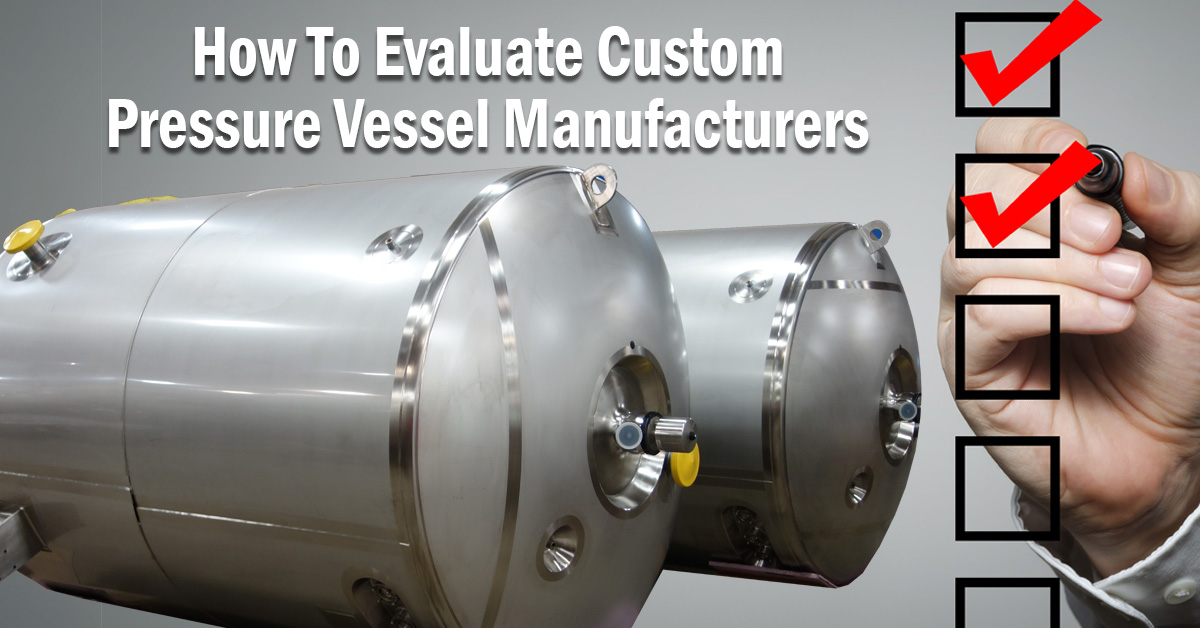
Accreditations
Custom and pressure vessel manufacturers must have accreditation for ASME certification. Compliance with the National Board of Boiler and Pressure Vessel code is required. Pressure vessel manufacturers must also manufacture to ASME material specifications, certificates, and welding qualifications.
Other accreditations are also crucial in the pharmaceutical, life science, and health industries. Confirm all industry compliance standards, including:
• ASME UM
• ASME U
• FDA
• 3-A
• CRN
• PED
• BPE
Quality Assurance & Compliance
Verify that the manufacturer has a dedicated quality assurance team. There are significant testing, certifications, and documentation requirements for all global accreditation programs. In-house inspection services are a benefit to ASME projects. Review services that should include:
• Pneumatic testing
• Hydrostatic testing
• Liquid Penetrant (Dye Penetrant) testing
• Saline testing and certificate
• Riboflavin/CIP (clean-in-place) coverage test
• Material Test Reports
• Base metal thickness certificate
• Material trace
• Welder trace
• Ferroxyl test and certificate
• Positive material identification (PMI) and certificate
• Ferrite levels and certificate
• Radiography and analysis
• UT weld testing and certificate
• Turn Over Packet (TOP) as required
Experience
The pressure vessel manufacturer must have expertise in the type of vessel and industry experience for the use of the vessel. Critical staff, fabricators, and welders must be ASME certified. All welders must be approved for the weld procedures required to make custom pressure vessels.
Experience and reputation are also significant when developing relationships with inspectors, agencies, and governing officials to keep the compliance process moving forward smoothly.
Service & Support
Above all, assess the service and support provided by the manufacturer. The vessel manufacturer should be able to articulate technical discussions and be open and honest with timelines, cost, and compliance-related issues. Consider other research and questions, such as:
• Is the proposal easy to understand and compare solutions?
• Do you have direct access to the engineer for questions?
• Does the company provide timely and accurate documentation?
• Does the company offer after-market parts and field service?
